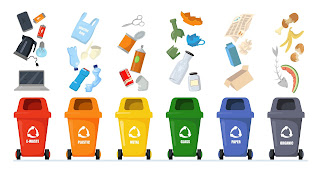Why the Circular Economy Makes Business Sense: A Smarter Way to Grow
The way we do business is changing. More than ever, companies are being challenged to reduce waste, rethink resources, and build long-term value. One approach that's gaining serious attention is the circular economy—and it’s not just about being eco-friendly.
It’s about making your business future-proof.
Let’s explore what the circular economy actually means—and why it could be one of the smartest moves your company makes.
What is the Circular Economy?
Picture this: Instead of making something, using it, and then throwing it away, the circular economy encourages businesses to keep resources in circulation for as long as possible.
It’s about:
-
Designing for durability
-
Repairing instead of replacing
-
Reusing instead of discarding
-
Recycling at the end of a product’s life
This model isn’t just good for the planet—it’s good for business, too.
1. Reduce Waste and Operational Costs
Waste is expensive. Whether it's leftover materials, energy loss, or unused inventory, waste eats into your profits. Circular practices help businesses identify inefficiencies and optimize resource use.
Examples include:
-
Using recycled or reclaimed materials in production
-
Offering product repairs or parts instead of replacements
-
Redesigning packaging for reuse or refill
These changes often lead to lower costs and better margins over time.
2. Build a Loyal and Eco-Conscious Customer Base
Sustainability is no longer optional for brands—it’s expected. Today’s consumers are more aware, more informed, and more selective.
By embracing circular strategies, you show customers that you’re taking responsibility and doing your part. This builds:
-
Brand trust
-
Customer loyalty
-
Positive word-of-mouth
When people feel good about your mission, they’re more likely to support and recommend your business.
3. Encourage Innovation and Creative Thinking
The circular economy invites companies to challenge the norm. It asks:
-
Can your product be made from fewer materials?
-
What happens at the end of your product’s life?
-
Could you offer a rental or subscription model?
These questions lead to new ideas, services, and revenue streams that not only reduce waste but also meet changing customer needs.
4. Strengthen Supply Chain Stability
When your business depends on raw materials or single-use components, global disruptions can cause chaos. Circular thinking offers an advantage:
-
Local sourcing
-
Recycled inputs
-
Repairable and reusable parts
These strategies make your supply chain more resilient and less vulnerable to price spikes or delays.
5. Stay Ahead of Changing Regulations
As environmental standards tighten around the globe, businesses are under pressure to comply—or pay the price.
Circular economy strategies help you stay ahead of legislation, avoid penalties, and maintain a strong reputation with stakeholders.
6. Open Doors to Partnerships and Investment
Investors and partners are increasingly prioritizing businesses with clear sustainability goals. A circular model shows that your company:
-
Understands long-term risk
-
Is committed to responsible growth
-
Can adapt in a competitive, conscious market
This can lead to greater funding opportunities, stronger partnerships, and new collaborations.
Final Thoughts: Circular is the New Smart
The benefits of circular economy in business go far beyond environmental impact. They touch every part of the value chain—from cost savings and innovation to customer loyalty and risk reduction.
Whether you're a small brand or a global enterprise, shifting your mindset toward circularity could be the key to thriving in a changing world.



Comments
Post a Comment